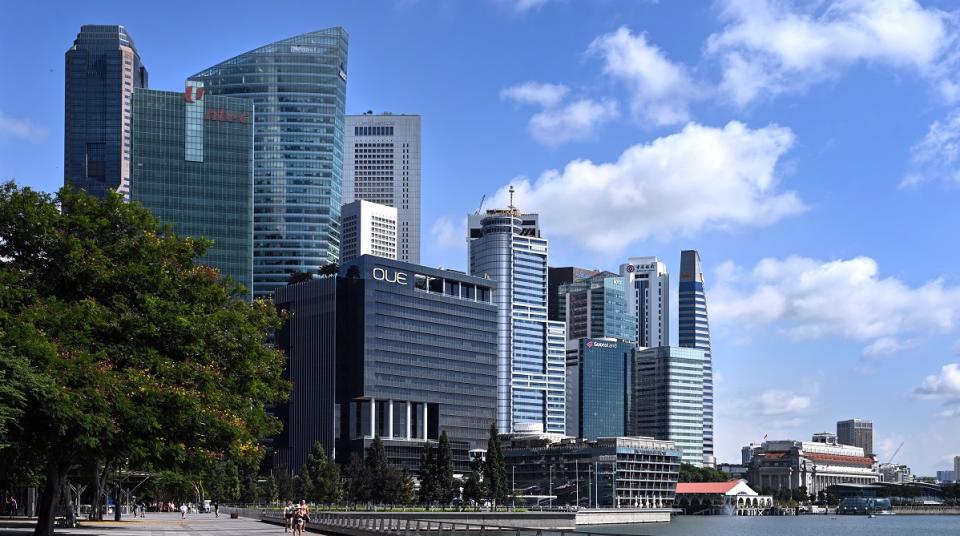Singapore seen to tighten Singdollar again 'very soon' as inflationary pressure grows

Instead of adjusting the Singdollar only, the government may have to consider other measures to contain inflation
Singapore’s higher-than-expected inflation for June has raised the possibility of further moves by the central bank to curb this economic scourge.
On July 25, Singapore reported that inflation has hit 6.7% for June - the highest since Sept 2008, with food, transport and utilities the main contributors. The 6.7% inflation rate was a significant notch above mean expectations of 6.2%,
Core inflation, which excludes accommodation and private road transport costs, has reached 4.4%. For May, corresponding numbers were 5.6% for headline and 3.6% for core respectively.
“Today’s inflation reading validates MAS’s recent surprise tightening move,” says ING economist Nicholas Mapa, referring to July 13 move to strengthen the Singdollar – the fourth such move since last October.
However, the central bank may be "called to action again very soon,” says Mapa, referring to July 13.
By strengthening the Singdollar via nudges to its exchange rate relative to an undisclosed basket of foreign currencies, imports will be relatively cheaper. However, forex costs will be incurred as well – as evident by MAS’ net loss of $7.4 billion for its financial year ended March.
“We do not believe the MAS is at its finishing line in the current tightening cycle,” concurs HSBC economist Yun Liu.
Inflationary pressures have been a persistent global phenomenon since the start of the year, made worse when Russia’s invasion of Ukraine in February caused commodities and energy prices to spike.
Nevertheless, economists were all taken aback by the magnitude of the increase. Last October, MAS has already made the pre-emptive move to strengthen the Singdollar as the post-pandemic demand recovery started nudging up prices.
Maybank’s economists Chua Hak Bin and Lee Ju Ye also expect further tightening. However, unless inflation blew past expectations again, MAS will make the next adjustment at its next scheduled half-yearly meeting in October, instead of making so-called ‘off-cycle’ changes.
“A slowing global economy and rising interest rates are deflationary forces that could cool price pressures in the second half,” note Chua and Lee.
Similarly, RHB's Barnabas Gan believes that with the recent easing of commodity prices, inflation may peak in the current 3Q 2022.
Now, instead of only adjusting the Singdollar, the government may have to consider other measures to contain price pressures, say the Maybank economists.
One possible way to do so is to defer the GST increase. However, the government has reiterated that the GST hike will proceed as scheduled, they note.
Otherwise, the wider implementation of the Progressive Wage Model in the waste management and food services sectors starting next March, could perhaps be delayed, for example, say the Maybank economists.
As part of the bid to replenish reserves for the long term, Singapore plans to raise GST to 8% in 2023 and 9% in 2024.
RHB's Gan expects Singapore to record a headline inflation of 5.8% this year, and core inflation of 3.8%. His previous forecast was 4.8% and 3.1% respectively.
UOB's Alvin Liew has similarly raised his headline inflation forecast to 6% for 2022, up from an earlier estimate of 5%; for core inflation, Liew now expects 4.2%, up from 4% previously.
In contrast, the current official forecast is 5 to 6% for headline inflation and 3 to 4% for core inflation.
Maybank's economists have raised their forecasts as well.
For 2023, they expect Singapore’s inflation to reach 3.5%, up from 1.8% expected earlier; for core inflation, to hit 2.8%, up from 2.1% seen earlier.
See Also:
Click here to stay updated with the Latest Business & Investment News in Singapore
Shallow recession calls are 'totally delusional', Roubini warns
Fed to inflict more pain on economy as it readies big rate hike
Mapletree Industrial Trust reports 1QFY23 DPU of 3.49 cents, warns of inflationary pressure ahead
Get in-depth insights from our expert contributors, and dive into financial and economic trends

 Yahoo Finance
Yahoo Finance 